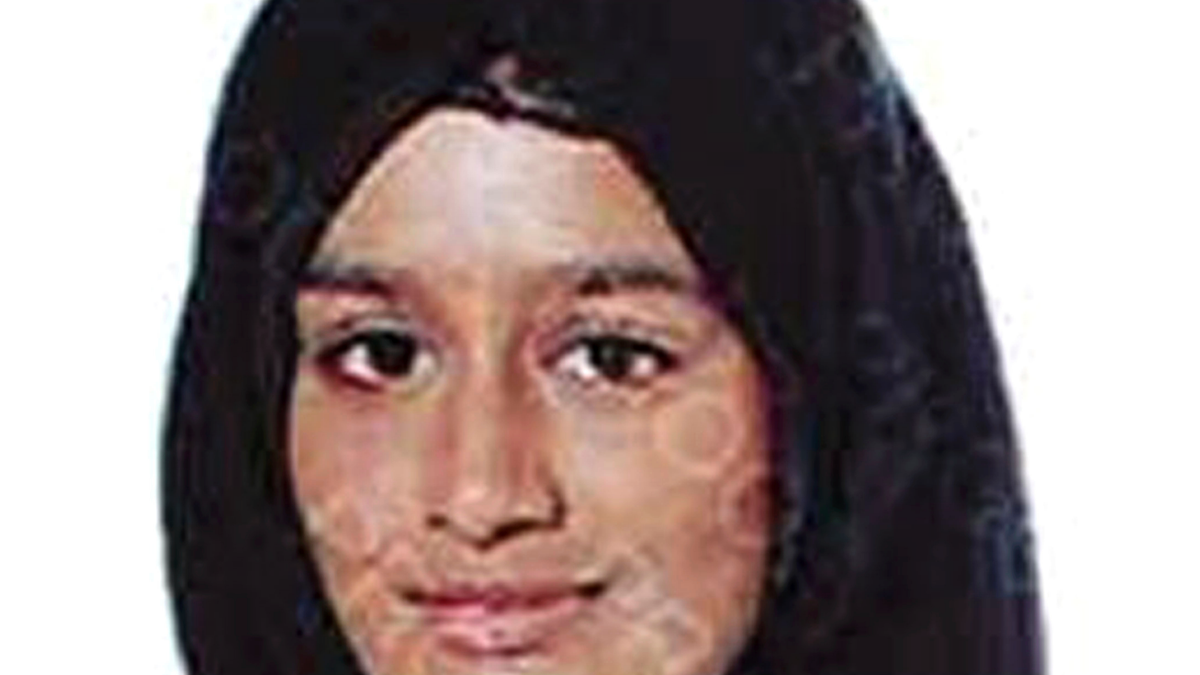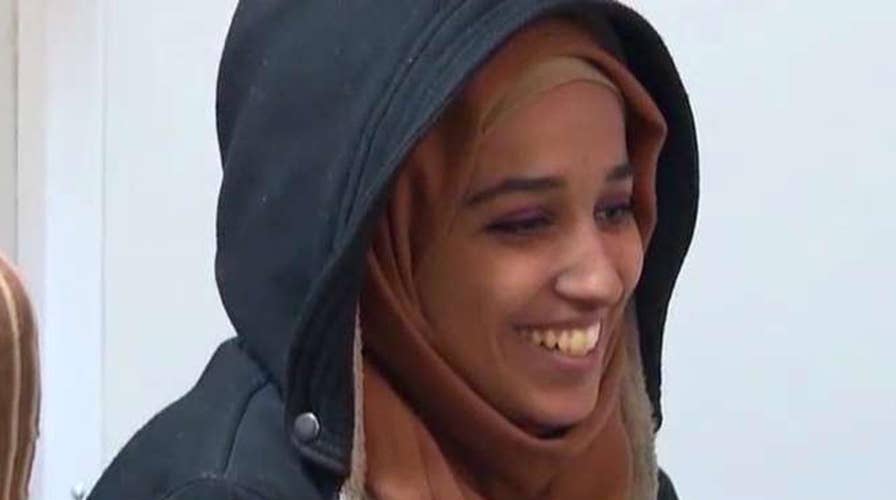British ISIS bride Shamima Begum admitted that she’s unlikely to come back to Britain after the government revoked her citizenship, but insisted that the terror group “brainwashed” her.
The 19-year-old, who fled her life in London for the Islamic State in her teens, has been stuck in a refugee camp for months now, attracting international attention amid her pregnancy and vocal plans to return to her home country.
Since the media scrutiny, Begum’s British citizenship was revoked by the government for supporting terrorism, while her third baby died last month. Her previous two children died during her life in the so-called caliphate while she was married to Dutch ISIS militant Yago Riedijk.
BRITISH ISIS BRIDE SHAMIMA BEGUM'S BABY DIES OF PNEUMONIA IN SYRIAN CAMP

British ISIS bride Shamima Begum (pictured) admitted that she’s unlikely to come back to Britain after the government revoked her citizenship, but insisted that the terror group “brainwashed” her. (Metropolitan Police of London via AP, File)
But Begum now says that she traveled to Syria to join ISIS in 2015 because she believed “everything that I had been told, while knowing little about the truths of my religion".
“I have sat down and thought about how long I would have to stay here. And I have kind of accepted that I will have to stay here, I will have to make this like a second home,” she told the London Times.
She said that since leaving Baghouz, a previously ISIS-held territory that was liberated earlier this year, she came to regret decisions she made and hoped the government may take a second look at her case.
ISIS TEEN WIFE BEMOANS UK'S 'UNJUST' DECISION TO REVOKE HER CITIZENSHIP
“Since I left Baghouz I really regretted everything I did, and I feel like I want to go back to the UK for a second chance to start my life over again. I was brainwashed,” she said.
“Since I left Baghouz I really regretted everything I did, and I feel like I want to go back to the UK for a second chance to start my life over again. I was brainwashed.”
Begum was subject to criticism following multiple interviews with media outlets in which she didn’t express remorse for joining the terrorist group. She even went on to suggest that a 2017 terror attack in the UK was justified due to British military participation in the war against ISIS.
She explained to the Times that the reason she made the offensive comments was because of pressure and fear of revenge from the jihadists in the refugee camp.
“Anything I said against Dawlah (ISIS), they would immediately attack me, so I was afraid of that,” she said.









































